It has been referred to as “Fade in the Water,” a word play that references the African American jubilee song “Wade in the Water,” which was sung to relay messages to escaped enslaved people that they should ‘wade in the water’ to lose the scent of the catcher’s dogs. History, as it always is in this country, is relevant.
By now, many of us are aware of the riverside brawl in Montgomery, Alabama that happened in August 2023. As a refresher, the melee began on a Saturday evening when a moored pontoon boat blocked the Harriott II riverboat from docking in its designated space along the city’s riverfront. The riverboat co-captain, a Black man, took another smaller vessel to shore to attempt to move the pontoon boat and was attacked by several white people from the private boat. Video showed the Black co-captain being punched and shoved. Crew members and others later confronted the pontoon boat party, and the brawl was in full swing.
Fade in the Water tapped into the deeply racialized history of America and its aftermath has produced numerous memes, online jokes, t-shirts, and even folding-chair shaped earrings. From inventing Gumbo to Hip Hop to Black Twitter, we have always made the most out of what we have.
For Sankofa Impact, our Pilgrimage to the South always begins our first morning in Montgomery at the very riverside where the brawl happened. Its historical significance is an important way to begin our walking tour of the downtown core of Montgomery, widely known as both the “Cradle of the Confederacy” and the “Birthplace of the Civil Rights Movement.” The riverside location has so much history that begs for context after the events that transpired during the Fade in the Water. I would like to offer some context through place-based learning and my own reflection.
Imagine standing at the Montgomery riverside 163 years ago. We would see a very similar looking steamboat to the one intending to dock when the brawl broke out. In 1860, the steamboat would have been gliding down the Alabama River. After the boat is secured to the dock, we would then be witness to dozens of tired, captured Black people forced off the boat in chains. Exhausted and traumatized, they would have been paraded through a nearby tunnel and up Commerce Street, named for the wealth and prosperity that flourished here during the era of enslavement.
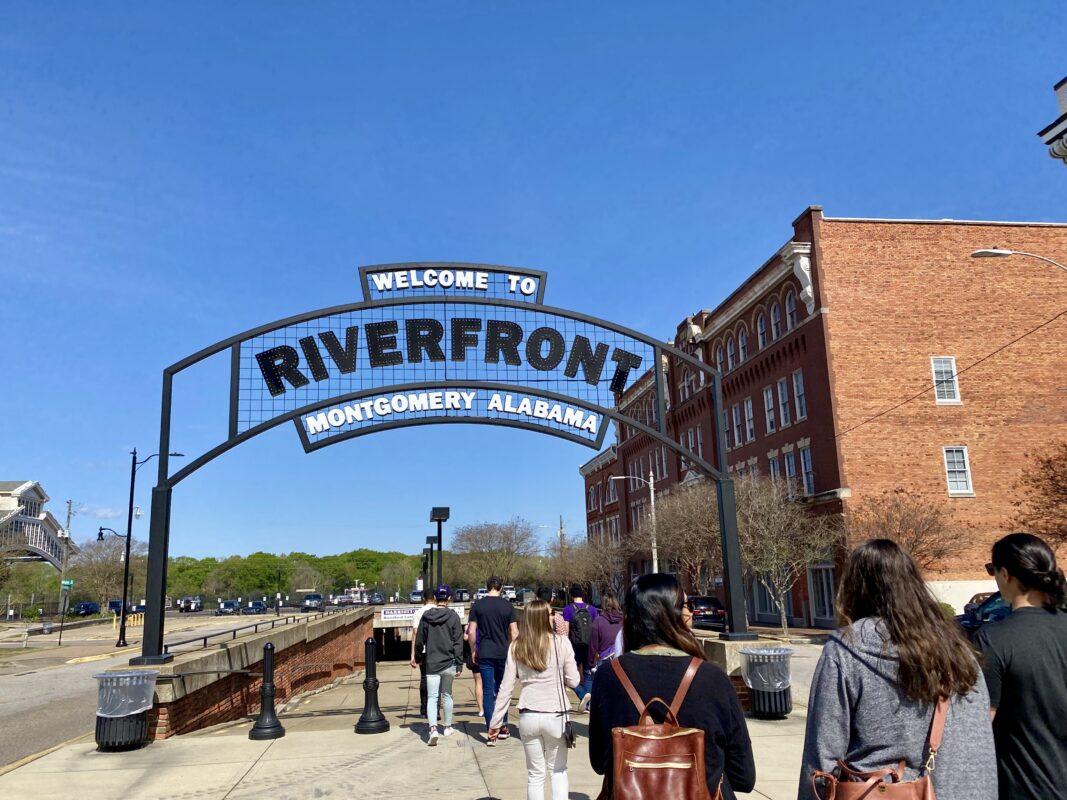
When we begin our walking tour at this location, we often speak about the enslaved people brought to this location and engage in mindfulness meditation. We start early in the morning and so it is often very peaceful by the river. When I am reflecting on the history here, I often think about the enslaved as mothers, daughters, and friends. I spend time and spiritual energy humanizing them in a way that they were dehumanized by the people driving the boat. I try to give them that power, in memorial.
When we leave the riverside, we walk in silence up the nearby tunnel to Commerce Street. The same path taken by countless enslaved people in chains. Men, women, and children would have walked, hands locked onto the shoulders of the person in front of them, until they reached their designated warehouse or pen. It is a short, somber walk to 122 Commerce St in Montgomery.
About a 5 minute walk from the riverside sits the office of the Equal Justice Initiative (EJI). A nationally respected nonprofit organization, EJI is committed to ending mass incarceration and excessive punishment in the United States, to challenging racial and economic injustice, and to protecting basic human rights for the most vulnerable people in American society. EJI is committed to changing the narrative about race in America by exploring our nation’s history of racial injustice, beginning with the legacy of slavery. For obvious reasons, Sankofa Impact is very much aligned with the work of EJI and we have been meeting with them since we began visiting Montgomery in 2014.
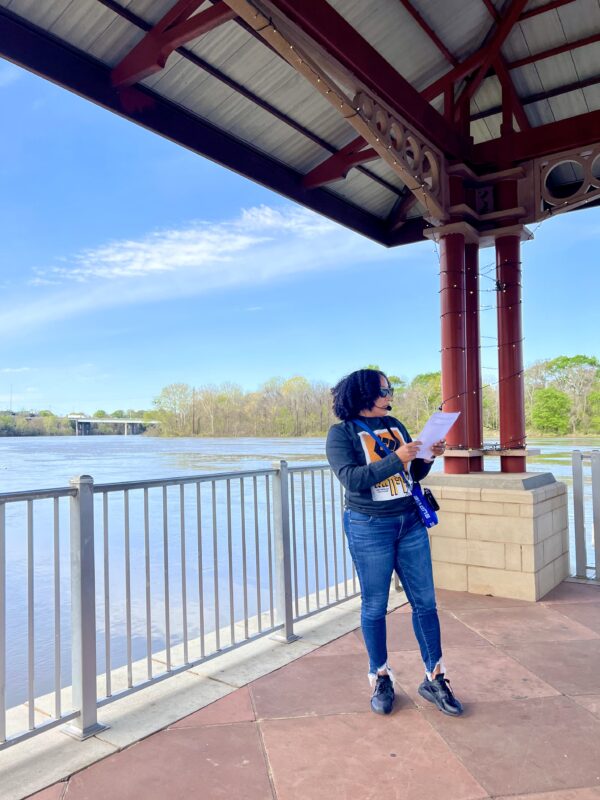
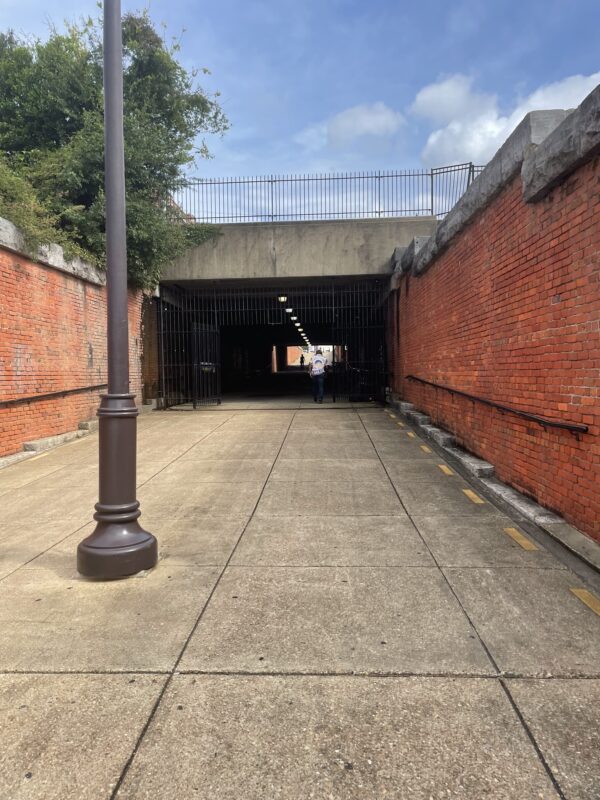
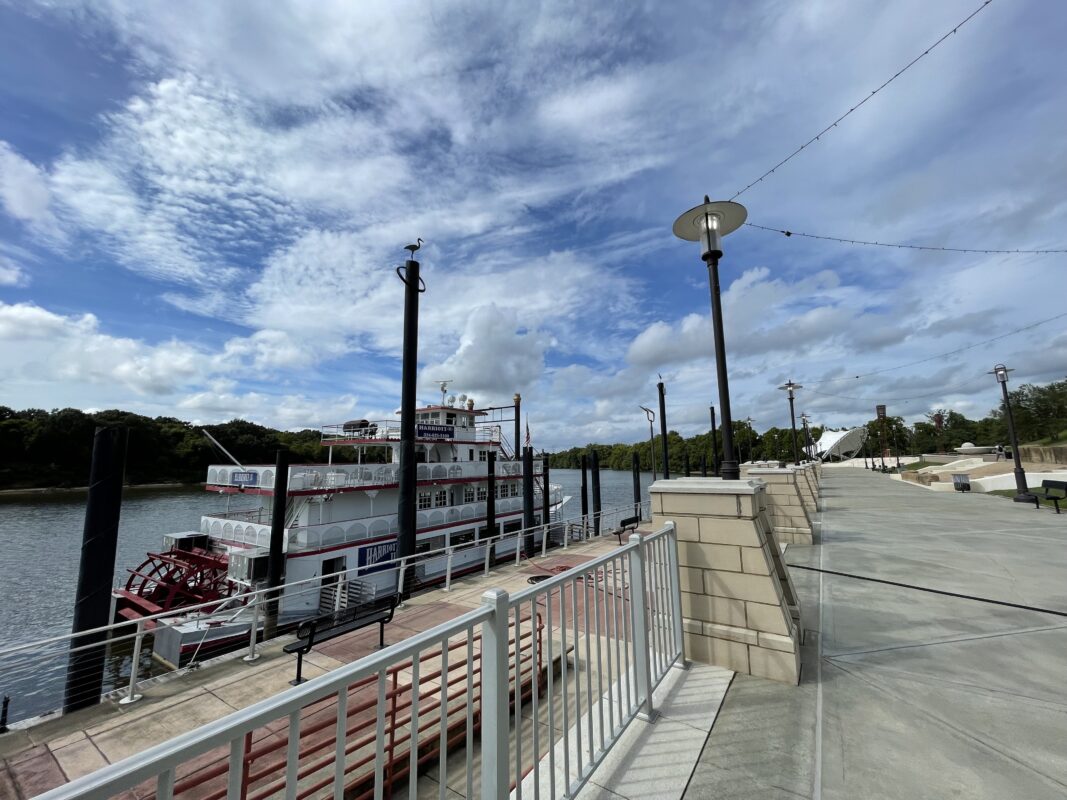
In 1860’s Montgomery, there were more business spaces here that were dedicated to enslavement than to worship and hospitality combined. One of the entrepreneurs who found financial success here was John H. Murphy. A wealthy businessman, Murphy ran slave warehouses and at his pens, enslaved people were confined in horrid conditions until they could be sold at the Court Square slave market, just around the corner. The Equal Justice Initiative offices are located at the same site of John H. Murphy’s former warehouse which once held hundreds of enslaved Black people. This is the most powerful example of reclaiming space that I have ever witnessed.
I have been reflecting on the intentions that I send to my enslaved ancestors during the mindfulness exercise by the riverside. Connecting that spiritual power to the scenes from the riverside brawl, I am drawn to the unspoken bond of Black citizens coming together to defend our humanity, both in real life and online. I also inherently reject violence, so the video was not necessarily something I took joy in watching. The melee was highly racialized and is symbolic of the further deterioration of race relations in America.
Some questions I am asking myself and that I would offer for consideration. How does history connect to the different places where news is made today? Is Fade in the Water another form of reckoning? Will we continue to witness and at times, participate in this type of resistance? What role would you have played during the brawl?
The goal of Sankofa Impact is to uplift narratives of historical racial harm, as well as narratives of freedom and resistance that counter that harm. One meme that I saw reminded me of the words of Shirley Chisholm, the first Black woman to be elected to the United States Congress. She said, “If they don’t give you a seat at the table, bring a folding chair.”
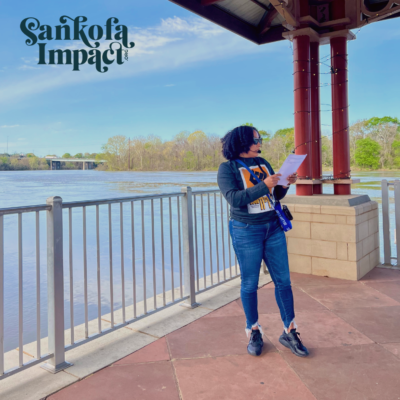

The images you invoked capturing the past and present cruelty towards black people are incredibly powerful. How horrified these souls must have felt walking through that tunnel to their unspeakable fate. And that man who was just trying to moor his boat and the violence he encountered is simply abhorrent to me. This hate. Thank you for the work you do.